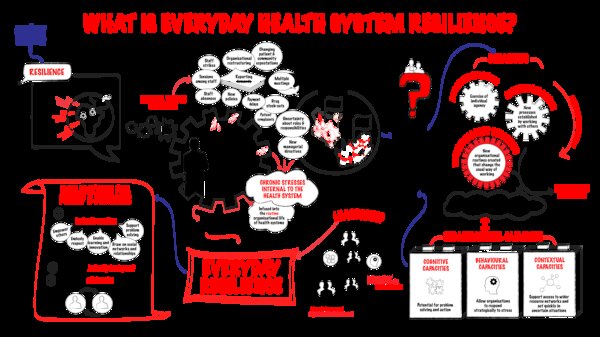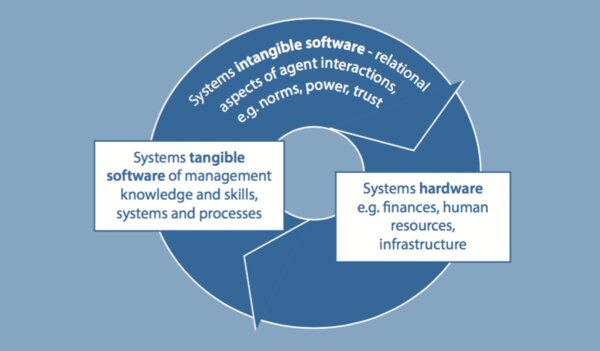Everyday resilience
Why it matters
Discussion of resilience in the health sector is characterised by a focus on sudden shocks, such as disease outbreaks; but beyond sudden shocks, organisations and systems face ongoing strain of multiple factors.
It's not only these large shocks that are important. It’s the everyday, routine challenges that front line staff face on a regular basis that are also important to take into account.
What we did
In Kenya and South Africa, RESYST has been exploring the routine challenges experienced by health managers and frontline workers, and how they continue to deliver services in the face of constant strain.
The work comes out of long-term collaboration with health managers and frontline health workers, known as a learning site approach, to support the health system.
What we found
- District health managers face stresses in their everyday work.
These include structural and policy instability, such as changes in governance structures, payment delays and abrupt and imposed policy directives. They also work with unstable authority delegations, manage unpredictable staff and address changing patient and community expectations. These stresses typically occur at the same time, in the same system, affecting the same set of people.
- Everyday resilience is the ability of health systems to continue to deliver services in the face of constant challenge and strain.
Everyday resilience derives from the combination of absorptive, adaptive and transformative strategies that actors in systems adopt in responding to strain. Strategies that nurtured everyday resilience enabled managers and health systems to emerge from challenges strengthened and more resourceful.
- Everyday resilience requires new forms of leadership by people at different positions within the district health system and in communities.
These forms of leadership mean that managers, health workers, patients and community members are empowered to solve problemsn and to build relationships and social networks.
-
Social networks and relationships are important.
Social networks provide access to the multiple resources and forms of value (material, knowledge, reputational) that bestow resilience to health systems.
-
Material resources and organisational structures matter.
Ensuring that health systems have adequate resources and strong structures, especially low and middle income settings, contributes to, but does not by itself generate, resilience.
Implications for policy and practice
- Governments and donors must pay greater attention to strengthening leadership practices. Leadership that reframes challenges to support problem solving, that embodies respect and empowers others, particularly front-line managers and staff; that enables learning and innovation, and that draws on and catalyses social networks and relationships across, within and outside the health system. This requires new approaches to leadership development, especially those that involve learning through doing.
- New forms of collaboration between health managers and researchers should be supported, as we have shown through the learning sites - it can nurture an understanding of the complexity and importance of health system resilience, and how to build it.

